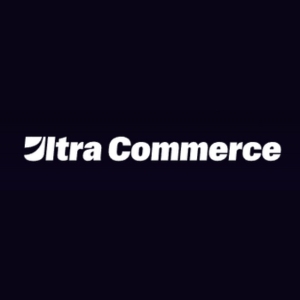The Best eCommerce Platforms
Starting or scaling an online store is an exciting leap—but it comes with one massive decision: which platform will be the foundation of your entire business? Your eCommerce platform isn’t just a checkout page. It’s the home for your products, brand, marketing, and data. And what is the difference between choosing a flexible, growth-ready platform vs. something that boxes you in? That can shape your trajectory for years. From solopreneurs just getting started to global retailers expanding across regions, the right platform should meet your needs now—while growing with you in the future. Below, you’ll find a mix of the best eCommerce platforms out there, whether you’re looking for low-code simplicity or enterprise-grade flexibility.


Headless eCommerce platform for B2B, B2C, and marketplaces that unifies storefront, PIM, OMS, payments, and promotions

SaaS commerce platform that empowers eCommerce brands to build stores, manage inventory and omnichannel sales, and drive marketing and analytics

Composable, enterprise-grade platform that enables B2C brands to deliver personalized omnichannel commerce

A live commerce platform that powers interactive, shoppable livestreams across social and web channels.

Subscription-first eCommerce platform that powers recurring billing, customer management, website building, analytics, and automation

Open-source eCommerce platform offering customizable solutions for businesses to create and manage online stores efficiently.

An AI-powered developer tool that lets eCommerce brands create custom Shopify sections or pages with ease—ready to publish or export as Liquid code, with full theme generation coming soon.

All-in-one headless eCommerce platform for fashion and lifestyle brands, built for seamless global DTC and wholesale operations.

An all-in-one platform that streamlines global shipping, returns, and inventory to help eCommerce brands cut costs, boost retention, and scale faster.
What is an eCommerce platform?
Choosing an eCommerce platform is the most important decision your business can make when it comes to your online experience. Platforms have a wide variety of features, benefits, integrations, and costs associated with them. From smaller platforms like Wix and Weebly which tend to serve the ultra small business or stores that only need a basic website experience, all the way up to the Magento 2 and Salesforce Commerce Cloud which have a ton of flexibility, but require a significantly larger investment in time and money. Your eCommerce platform will be that central location where you go, likely daily, to manage your website, marketing, sales and operations, inventory, and of course this is where customers can browse products, add to cart and checkout. It's your digital retail store. Choose wisely.
Why use Ecommerce Platforms software?
An eCommerce platform is the software that powers your entire online store. It’s where you upload products, manage orders, customize the user experience, and track performance. Think of it as the foundation—your store’s digital headquarters. Some platforms (like Shopify or BigCommerce) are all-in-one, offering hosting, payment processing, and templates out of the box. Others (like Magento or Salesforce Commerce Cloud) require more development resources but offer more flexibility and scalability.
Whether you’re selling one product or thousands, your platform sets the tone for how easily your business can operate—and grow. It’s also what determines how well you can integrate with your other systems: marketing tools, analytics, inventory, CRMs, and more.
When should you invest in Ecommerce Platforms software?
From the moment you decide to sell online, you need a platform. Whether you’re testing an MVP or launching your tenth product line, a reliable eCommerce platform gives you the structure to sell effectively, learn from your data, and make informed decisions.
Already running a store? You might need to upgrade your platform if your current setup feels clunky, doesn’t scale with your growth, or can’t integrate with the tools your team relies on. Switching platforms is a big move—but sometimes, it’s the smartest one.
Who in your team is managing Ecommerce Platforms software?
eCommerce Platforms are set up and managed by your head of eCommerce. Your head of marketing will likely be in there, your developers and designers (or agencies and consultancies), and odds are you as the CEO will be in there at some point, tinkering around.
What are the most important features to consider when buying Ecommerce Platforms software?
Flexibility, scalability, ease of use, support, and integrations are important. Also, consider hosting reliability, mobile responsiveness, SEO options, performance speed, and the quality of third-party apps available.



